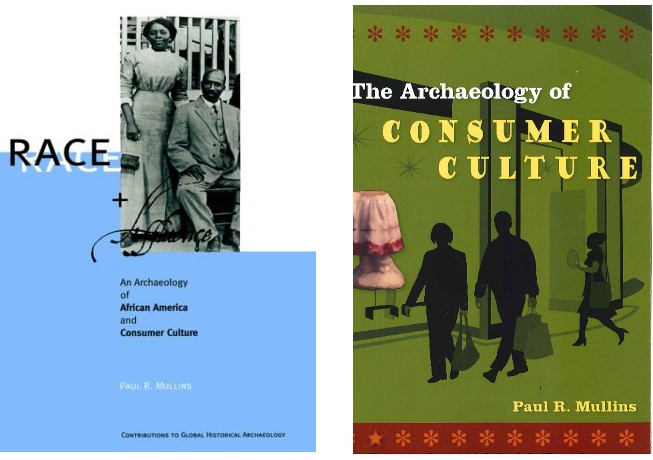
Paul Mullins, professor and chair of the Anthropology Department at Indiana University-Purdue, has published a number of articles and books focused on identifying evidence of consumer behavior from archeological material culture and determining how culture, race, and racism are intertwined with buying practices. In his research, Mullins has shown that transposing modern concepts of wealth onto past peoples is misleading. Archeologists, he cautions, should not measure wealth in monetary terms alone without considering the underlying “material symbolism.” Consumption has always been an expression of “social and personal desires.” Many objects carried symbolic meaning for the people who owned them and to others within and outside their community.
African Americans, Mullins notes, cannot be characterized by a single, simplistic consumer behavior pattern. Consumer practices varied widely across time and space, as did the underlying political motives for some forms of consumption. In some cases, consumerism may have been a conscious form of resistance to the dominance of white society—a subtle form of political activism. Under other circumstances, consumer choices may have been expressions of people’s personal identities rather than political statements.
Historical research and archeological studies have demonstrated one important fact about the African Americans in the post-emancipation period. Rather than being idle bystanders in this period of unprecedented growth, the large freedmen population from the South spread across the country and became a significant factor within the nation’s consumer economy as they sought to obtain their slice of the American dream.
.